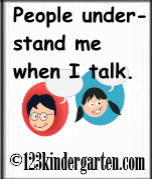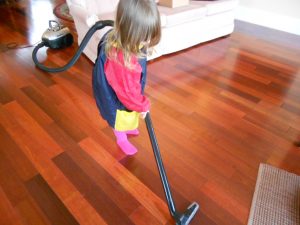Are Communication Activities and Play Part of Your Child’s Day?
More and more we are adding to the list of what’s important for kids beyond academics. Do you know how deeply communication skills impact kids?

Some very recent research published in Science Daily has found that the level of language stimulation for young children can be a factor in childhood depression.
“Children who experience low levels of language learning stimulation beginning at three years of age are more likely to experience language delays by first grade and are three times more likely to develop depression by third grade, new research indicates.” (Science News, University of Missouri-Columbia: Early-life language stimulation, skills may prevent childhood depression)
While new, this finding that communication kids affect kids so critically isn’t surprising. It’s hard for kids to communicate what they want and need in the first place. They don’t have the words or the language patterns. They are confused by their own feelings. Not everyone can understand what they mean. Now, for kids who have challenges with language, the problem is incredibly frustrating. They lose confidence in themselves. They can’t trust others. They are heart-broken and give up trying. Sound like depression to you?

Could you use some communication activities and play ideas to boost language stimulation? Doable, parent-friendly, child-tested suggestions are:
- Read and share books. This is one of the easiest to do. You can snuggle together and read any time of the day. Tuck a few books into a bag for waiting in line, going on the bus, etc.
- Tell stories. No equipment needed, other than imagination. Make up stories about anything: the shoes that couldn’t wait so they left by themselves, a magic box of crayons, an upside down rainbow. You might find this hard at first but imagination will stretch quickly.
- Sing songs. Sing favorites, make up silly songs to old tunes. Hum Mulberry bush and sing, “This is the way we vacuum the floor, vacuum the floor, vacuum the floor.”
- Have conversations. Notice your child is upset about something? Grab 2 stuffies and have them talk about the problem. Use words that your child might need.
- Stir in words. For everyday situations, include words. At the store, talk about what you need. Ask yourself questions and answer them. Describe the colors, sizes, of fruits and veggies. Doing the laundry, sort the clothes with words, “Okay, shirt. You have dark stripes, so I think you go in the dark pile.” Ask your child questions, and wait for the answer. Sometimes finding the words takes time but a smile invites kids to talk.

None of these need you to be a rocket-scientist. They are ordinary. Maybe that’s the problem. It’s hard to believe something so simple can make such a profound difference. Helping kids to use language so others understand them is more than helping prepare them for kindergarten. It’s giving them the biggest tool or strategy possible for interacting with others. Communication skills impact kids now and in the future. If ever there is a magic wand in life, it’s language. In a way, maybe words—any words—really are magic?
